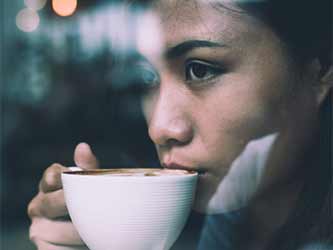The ageing process and sleep
05-12-2014

Sleep is something that is intrinsically connected with age. When babies are first born they need to sleep for as much as three quarters of every day. Then as they age their sleep requirements drop, by around two or three they stop needing naps during the day and then only require about 8 or 9 hours a night. When they become teenagers their sleep needs shoot up again and they actually need more sleep. This small bump in sleep requirement is done about the time people leave high school. After this most people will have a constant need for about 6-8 hours of sleep a night.
Much has been said and written about young people and sleep. This is not surprising, considering how vital it is for mental and physical development, plus how much struggle many parents have faced either trying to get their young children to go to sleep or trying to get their teenagers to get up. However, far less is said about sleep and ageing, this is something we want to rectify as sleep remains critically important throughout our lives and with more and more of us living for longer and longer it is vital that we understand this phenomena and its impact on our lives, so here goes, Ergoflex’s guide to sleep and the ageing process.
How much do you need as you age?
The first thing we need to cover is one of the most persistent myths about sleep and ageing: that as you get older you need less and less sleep. This is simply not true. As mentioned in the introduction you will still need the same amount of sleep no matter whether you are 20 or 80. The average person requires about 6-8 hours a night. The problem is that it becomes harder and harder to get those 6-8 hours as you age but that doesn’t mean that you do not need it. Sleep remains as essential no matter what age you are.
What are the sleep changes that occur when you age?
Ok, so older people find it more difficult to get a full night’s sleep? What are the changes that people will experience as they age? There are a number, thought not everyone will experience all of them.
• Many people will find it takes them longer to get to sleep at night.
• Often the sleep is not as deep, sometimes they miss out on the slow wave sleep phase.
• Many will wake up at least 3 or 4 times in a night.
• A number of people (especially men) will experience the need to go to the bathroom a number of times in the night.
• As you age sleep becomes less fulfilling and you are more tired in the morning.
• Often a person’s sleep schedule will change, they will start going to bed earlier in the morning and waking earlier in the morning.
So why do older people struggle more with sleep?
As the human body ages there are a number of changes that occur that have an effect on sleep quality and quantity. Again not everyone experiences all of these but they are common in many people.
• Melatonin: As we age the hormone production in our bodies changes. One of the most important hormones for sleep is called melatonin and the production of this drops as we grow older. This alone has a significant impact on our sleep levels. Melatonin is produced in the darkness and makes us feel sleepy so with less melatonin being made it is not surprising that older people struggle to get to sleep and to stay asleep, they have less of the vital hormone in their system.
• Growth hormone: We also produce less growth hormone, which is what helps put us into the deeper phases of sleep so the older we become the less able we are to enter these phases of sleep.
• Menopause: Clearly this only refers to half the populace. As women go through menopause there are a number of physiological changes that occur that make it more difficult to sleep.
• General health problems: It is no secret that as we get older we will end up with more health problems and many of these can make getting to sleep and staying asleep more difficult. Even simple issues can make it difficult to sleep when you are older as they are exacerbated by other problems and the general issues with sleep that older people experience.
• Arthritis: Arthritis makes it more difficult for people to get comfortable in bed and this makes it harder to fall asleep.
• Diabetes: Diabetes and sleep have a strong connection that scientists are still untying. Diabetes can directly impact your sleep through blood sugar levels, but it can also increase night time urination needs.
• Heart disease: Heart disease can make it harder for people to sleep for a long time.
• Parkinson’s disease and Alzheimer’s disease: Both of these diseases can cause an increase in anxiety in people which makes it harder to get to sleep.
• Lifestyle changes: As we grow older our lifestyles change. Often many people become less active, which can impact sleep. Retirement can lead to a range of changes to routines which can impact sleep as well.
• Alcohol, caffeine and nicotine: These three impact anyone’s sleep but as you get older you will find that they have an ever bigger impact on your sleep.
• Medications: Part of growing older is needing more medicine and often medicine can impact your sleep. There are many different medications that have negative consequences for sleep.
Remember that just because you may find sleep harder to come by as you age it does not make it any less important. That is why it is essential for people to work hard on getting enough sleep each and every night. If you are still struggling then feel free to look through our archives here at Ergoflex, we have lots of helpful articles on different foods and drinks that will help you sleep, on ways of turning your bedroom into a sleep chamber and methods for getting to sleep when you are struggling.
More stories like this one



